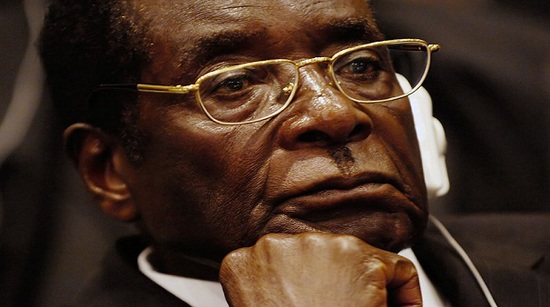A lot has been written about the West’s attempts to promote democracy during and since the end of the Cold War. Many leaders in democratic countries seek to put pressure on autocratic regimes (with notable exceptions, of course), and hundreds of NGOs work around the world attempt to sow the seeds of democracy, training judges, monitoring elections, helping opposition groups and strengthening civil society. Liberal optimists believe the world is on its way towards universal democracy. According to them, autocrats in Beijing, Pyongyang, Ryad and Havana are on the wrong side of history and it is only a question of time until they, too, will succumb to the irresistible push of societies around the globe to assert their political rights.
And yet, a smaller group of analysts points out that recent gains for democracy around the world tell us little about the future. Quite to contrary, they point out that we witness a ‘democratic regression’ and a ‘freedom recession’, with many so-called democracies being stuck in a semi-democratic state and democratic rights being curtailed around the world. The Economist worried about a world of “phoney democracies” back in 2000.
While such claims are contested, it is worth noting that, quite soon, the world’s largest economy will be that of a non-democratic country — for the first time in several centuries. This matters because, as Narizny points out in a recent article, powerful actors are disproportionally more capable of influencing other countries. At the time same, Shambaugh believes that even being the world’s no.1 economy, China will never be as influential as the United States has been over the past decade, largely because it has no soft power. I disagree and believe that despite its lack of democracy (which arguably reduces its attractiveness), China will be capable of influencing others in ways we cannot yet imagine. How, then, will policy makers in Beijing seek to influence the world? Will they seek to autocratize other countries, or slow down the spread of democracy around the world?
Since many democracies have an interest in the spread of democracy, it may seem clear that autocracies will try, for their part, to promote autocracy. Yet before coming to premature conclusions, one should ask: Does China care about the state of global democracy? Are autocratic regimes any more likely to be friendly with China than democratic ones? Probably not. Given China’s economic importance, Western calls on China to democratize are increasingly tame and subtle, more political theatre for domestic audiences than an attempt to seriously disturb or influence policy makers in Beijing. What is more, the prospect of a democratic transition in China – with all the political and economic instability this may imply – is likely to cause more panic than joy among leaders in Europe and the United States.
Some may argue that the success of democracy abroad may increase domestic pressure in China to follow the trend – and that, as a consequence, China will try to undermine prevent the spread of democracy. Yet censors in China quite successfully kept information about the Arab Spring away from the Chinese population, and fear of information flowing into China and causing a stir are likely to be limited.
Yet what about Sudan, Zimbabwe and North Korea, countries that — to some degree — have benefitted from Chinese largesse? Aren’t they proof that China is an avid autocracy promoter? Not really. After all, many more autocratic human-rights abusing regimes around the world – such as Saudi Arabia, Bahrain and Mubarak’s Egypt, just to name a few – have largely survived due to the United States’ active help. The same goes for Western development aid: The largest recipient over the past decade has been non-democratic Ethiopia. China’s growing presence in Africa and the regions is unlikely to have a stronger (or worse) effect on democracy than that of established powers. The true culprit of Mugabe’s continued reign in Zimbabwe is South Africa, not China.
In addition, while exporting democracy may be part of the United States’ guiding purpose in foreign affairs (and the Soviet Union’s during the Cold War), China may simply have no interest in exporting any ideology. Even at the height of Mao’s rule, when China gave up to 5% of its GDP to developing countries in the form of development aid, it rarely sought to impose any specific political regime.
Peter Burnell argues in a paper that there are some inter-governmental organizations that “declare an express intent of trying to stem and reverse the democratic tide through collective action of mutual support and self-defence” such as the Shanghai Cooperation Agreement and Commonwealth of Independent States. Yet saying that these institutions’ overall purpose is to prevent democratization would be a stretch. China may support, as mentioned above, some autocrats around the world, but not in a systematic fashion.
It is therefore entirely unclear whether the rise of autocratic China may affect the global state of democracy. We simply do not know enough about Beijing’s future intentions. If global order is to truly take on a multipolar structure, Western influence – particularly in Africa – may diminish notably, yet deducing that this is bad for democracy would be premature and simplistic. China’s continued economic success may convince some leaders that Beijing’s political model offers an interesting alternative to democracy, yet it is far from clear whether their citizens will agree. For now, the specter of Chinese autocracy promotion does not seem to loom large.
Read also:
Brazil and the democratization of foreign policy
IBSA: Where do we go from here?
South Africa’s BRICS membership: A win-win situation?
Photo credit: Tech. Sgt. Jeremy Lock (USAF)









